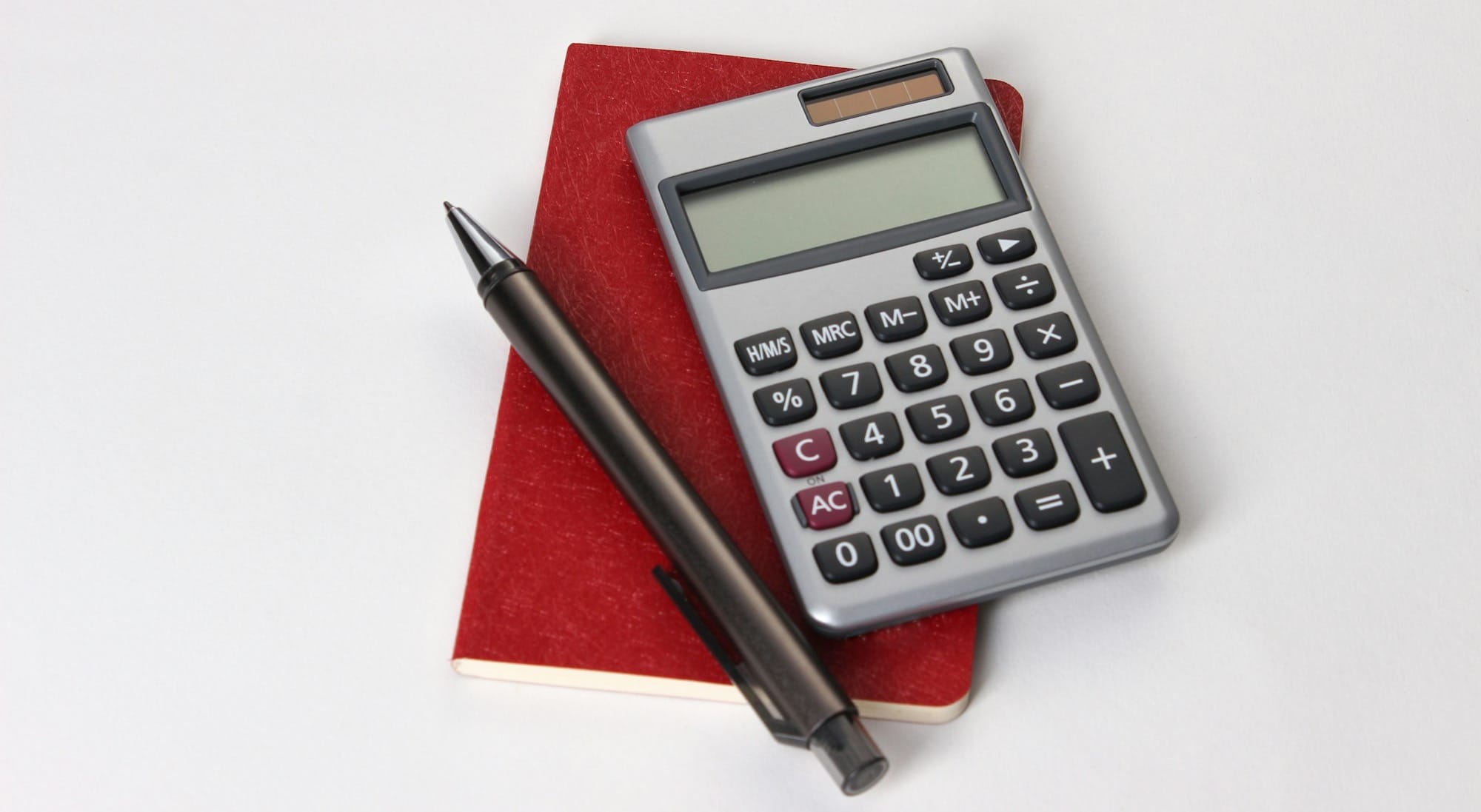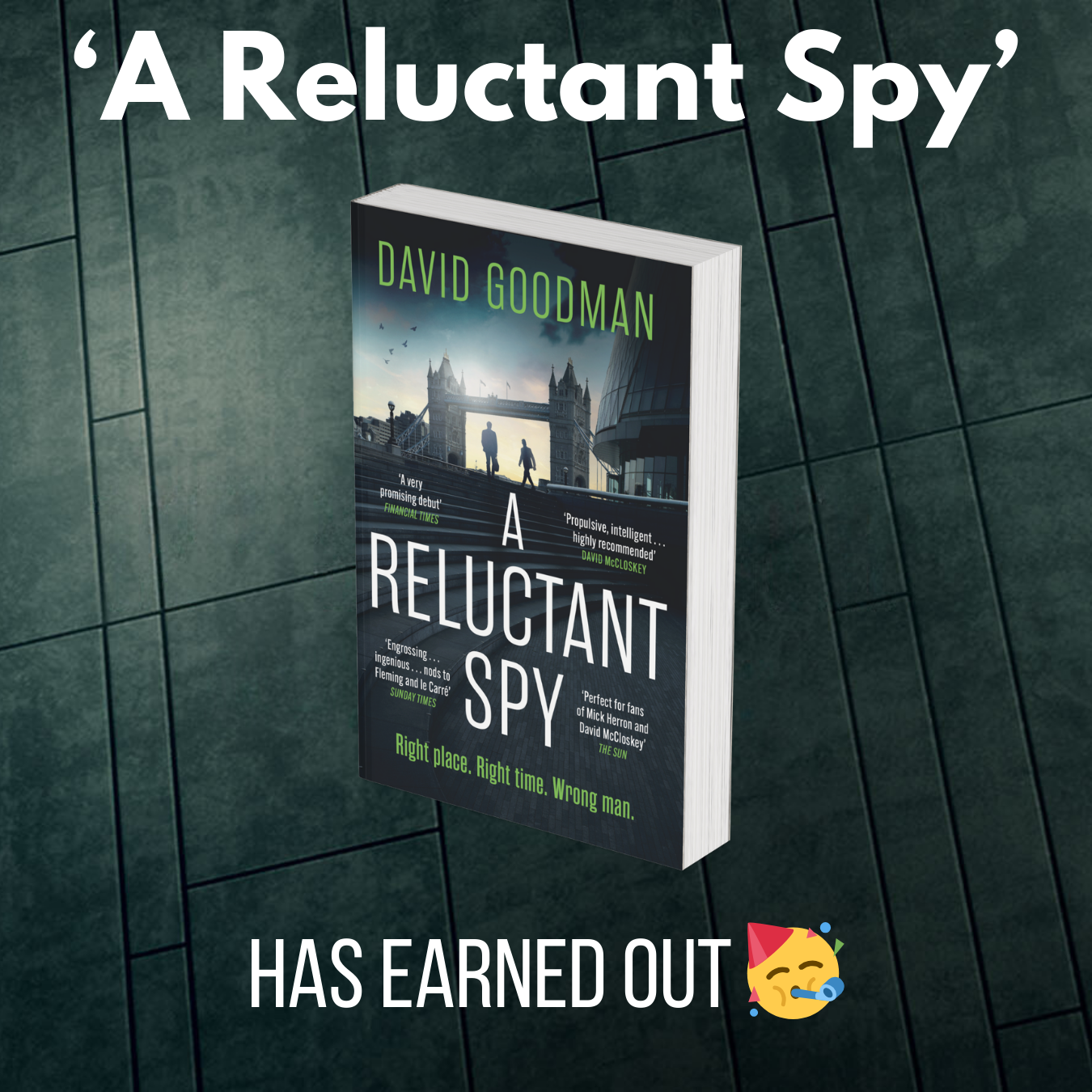A Reluctant Spy earns out
My debut is officially an earner.

Earlier today I was very, very happy to post this image on social media:

In a way, this image is slightly inaccurate, as it's showing the paperback cover, which doesn't come out for a little under two months yet. So that edition hasn't contributed at all to this milestone. But it's a good jumping off point to talk about what 'earning out' is, and why I'm so delighted that it has happened this quickly.
What do you mean by 'earned out' exactly?
This is my debut novel, and a trade-published novel, put out by an imprint (basically a brand, in my case Headline Books) of one of the 'Big 5' major worldwide publishers (Hachette, in my case). A RELUCTANT SPY is printed by Headline and sold to retailers (both bricks-and-mortar bookshops and online retailers like Amazon), as well as sold via eBook portals (Amazon, Kobo etc) and audiobook providers (Audible, Libro.fm, Spotify).
When I signed my contract with Headline, they paid me an advance (AKA an 'advance against royalties'). This isn't a loan or conditional payment, it's based on what the publisher thinks they can earn in revenue and profit by selling the book (there are some conditions where it's repayable, like failing to deliver the book, but that's outside the scope of this post). You usually receive this split over three or four payments - when you sign the contract, when you hand the book in, when it comes out in hardback, then in paperback.
As each copy of a book is sold, a percentage (based on the format, where it's sold and any discounts applied) will be payable as a royalty. But until you've earned enough royalties to 'earn out' the advance, you don't actually see any of the money, apart from the advance itself.
The majority of books don't earn out (I've seen estimates from 70% to 90% of books) but publishers will generally be comfortably in the black (i.e. making a profit) before they start paying royalties directly to you. You can play with this web-based calculator to get a rough idea of when books become profitable versus when they earn out.
There's a whole bunch of additional complexities not discussed above (export royalty rates, discounted royalties, subright sales, escalators, listing bonuses) but for the purposes of this post I had a pretty standard contract.
So this is good, right?
Yes! Very good. It means that in the first three-and-a-bit months of sales (September 12th through to 31st December of last year) I sold enough hardbacks, eBooks and audiobooks to earn out my entire advance. Although a majority of books don't earn out, the ones that do tend to take a little longer than this (earning out in a year is usually regarded as a pretty good performance).
Part of this is a function of advance size (modest, in my case), meaning I had an achievable sales target to hit, but it's also a really great reflection of the way this book has been championed by so many people, including readers, newspaper reviewers, bloggers, my agents Harry and Emily, my publisher, Goldsboro Books (who commissioned an amazing special edition), other writers in my various writing communities and the festivals and events I've been invited to.
We got a lot of great review coverage and some fantastic blurbs, plus the news of the TV option really helped with overall visibility I think. A lot of things lined up in a pretty amazing way. Plus I made some goofy book trailers on Instagram. I don't know how much those helped, but I had fun making them.
So what now?
Next up is the paperback release, as well as future royalty periods. They're totted up and paid out every six months, with a bit of a lag while they do the sums and money gets transferred via agents etc. But I can now say that every person who picks up a copy of the book is directly putting a wee bit of money in my pocket, which is a lovely feeling.
A few years ago I had a long talk with myself about whether I'd do this writing thing long-term, even if it never panned out on the publishing side. Was it worth the time and energy and emotion I was putting into it, versus other things I could do with my time? And I said yes, because I love writing, and I'd still write even if it never paid off in monetary terms. Which doesn't mean that I'm not very happy that it has paid off, after all.
I'm a long way from making this my full-time living, but it's very nice to know that thousands of people have enjoyed my debut novel and that I'll now share directly in the success of the paperback edition as a result. I'd be writing anyway, but that knowledge is pretty validating and encouraging, I won't lie. After all, writing and publishing, while closely intertwined, are really two different things. I know I can do the writing part, but I'm immensely encouraged to find that I seem to be doing alright at the publishing side of things too.
